The Iodyne Pro Data offers storage for creative professionals working in teams, combining multiple Thunderbolt connections with high capacity NVMe SSD storage, in an appliance accessible by multiple users.
Videographers and others working in creative fields have to deal with vast amounts of data, that needs to be worked on as fast as possible. In a team, this could also mean the need to have the same trove of data being accessed by multiple people at the same time.
Apart from duplicating data for each user who will use it, the typical solution is to use some form of network-attached storage, and to have the various Macs and PCs access the data over a network. This approach is valid, but it can be speed-limited, even using 10-gigabit networking.
Iodyne attempts to solve that problem by making a portable storage device that takes advantage of the high bandwidth offered by Thunderbolt. While a typical external drive may offer this benefit for just one user, the Pro Data does so for multiple users.
Iodyne Pro Data - Portable and Stylish
The Pro Data is flat like a pre-2012 MacBook Pro is — just bigger. It is 15.39 inches long by 10 inches wide and 1.22 inches thick, increasing to 1.4 inches if you include the rubber feet. It's not what you would consider traditionally compact when put against a typical external drive, but this isn't really meant as a small thing to be carried around by consumers.
That also translates to the weight of the unit tipping the scales at 7.3 pounds. The enclosure is made from aluminum, which helps with thermal management, but also goes some way to explaining the weight.
For reference, a 16-inch MacBook Pro is measures 14.01 inches long, 9.77 inches wide, and 0.66 inches thick. As well as being smaller, the MacBook Pro is also considerably lighter than the Pro Data at 4.8 pounds for the heaviest M1 Max model.
It may be bigger and an awful lot heavier than a 16-inch MacBook Pro, but it's not prohibitively so. In a production environment, a seven-pound device that's a bit bigger than a notebook computer is a relatively small price to pay for having flexible storage options while on the move.
You also have a 0.7-meter Thunderbolt data cable included in the box, with options available for 2-meter and 50-meter optical cables, if they're required — but more on this a lot later. You also have a compact-for-the-power 180W GaN power brick that provides power.
Iodyne Pro Data - Multi-user Connectivity
The Iodyne Pro Data is billed as the first all-NVMe, all-SSD Thunderbolt RAID device that combines 12 NVMe SSDs and eight Thunderbolt ports. Naturally, that means it has some beefy connectivity options.
On one edge of the device are the eight Thunderbolt 3 ports, divided into four pairs. Each pair of those 40Gb Thunderbolt 3 ports is divided into an upstream and downstream.
Iodyne's driver allows for two of those Thunderbolt ports to be connected to a single Mac. The company calls this Multipathing.
The downstream ports can be used to hook up other Iodyne Pro Data devices.
Iodyne Pro Data - Storage
Packed inside the Pro Data is a group of 12 NVMe SSDs, which Iodyne offers with total capacities of 12TB or 24TB. In RAID-0 format you obviously get the full 12TB, while that is cut to 10GB because of parity in RAID-6.
While there's one large pool of capacity to use, it can be set up into separate containers, which can have different purposes. For example, a Transactional RAID-6 container can be used for mission-critical work, while RAID-0 containers can provide a storage cache or simple file storage.
The device's dynamic striping handles the distribution of data across the drives, as well as parity, and other related elements.
In usage, the containers separate data into sections that could be used by host Macs, but they can also be used to hand tasks between users as part of a workflow, via "Storage Handoff." For example, a container holding a project could be allocated to a specific user, but then can be shared with another, without necessarily providing access to others connected to the same system.
There are also options to enable per-container passwords to limit access to containers, with XTS-AES-256 encryption complete with a hardware Secure Enclave used to protect all data at rest. In total, you can create up to 15 containers per unit, giving plenty of options for storing data.
Iodyne says that the units will support up to 576 TB. This is realized by high-capacity storage in daisy-chained units, and you can't get there in one enclosure.
Iodyne Pro Data - Upgrades and Repair
The aluminum enclosure has a service panel that can be unlocked and removed using a pair of standard screws. Behind the panel is the collection of 12 NVMe M.2 SSDs, which are individually enclosed in a carrier that has a heatsink to help with cooling.
These carriers, too, can be accessed using a single screw, with the SSD module then able to be replaced by hand.
This is part of Iodyne's decision to support a "Design for Repair," so that parts can be replaced if required. This includes using SO-DIMMs, so memory caches can be replaced, while fans use simple connectors, making them replaceable as well.
SSD management is mostly handled by a native Mac app, with it used to monitor the health and lifespan of installed SSDs, alerting if problems arise with individual drives. We didn't experience a hardware issue while testing, but when we removed one of the SSDs in the raid, it was clear about that being the problem.
There is the option to register the hardware with the Iodyne Cloud, which involves the sending of telemetry reports about the health of the Pro Data and its SSD modules to the company. The telemetry data is just about the drives, not customer data itself.
Collecting telemetry data provides a few features, but the key one is that products under warranty can have spare SSDs sent to customers automatically at no charge. On arrival, the user can follow supplied instructions to replace the defective SSD within a few minutes.
For out-of warranty repairs, the company has provided manuals to iFixit for free, and offers the sale of spares via its store.
Iodyne Pro Data - Performance
The Iodyne specs say that the unit is capable of up to 5 gigabytes per second bandwidth, but our testing in full two-cable mode delivered a bit more than that. We saw sustained speeds of about 5.2 gigabytes per second read and 2.1 gigabytes per second write speeds in multi-path RAID-0 mode.
One-drive connections are obviously more bandwidth-challenged. When using one connection to a host, we saw fairly standard NMVe speeds of about 3.1 gigabytes per second read and 1.8 gigabytes per second write, also in RAID-0.
And, using our faithful Kanomax model 4431 audiometer with the gear three feet away, we had a baseline of 36 dBa of ambient noise with the unit off and under no load to speak of. Our main testing unit, a M1 Ultra Mac Studio hits 39 dBa at idle.
Under full load from the one unit, the noise increased to 42 dBa — but this was all from the Mac Studio which we tested before at 42 dBa under load.
We did the same testing in the unit's RAID-6 mode, and saw slightly lower write speeds to the tune of about 200 megabytes per second less write in both single- and multi-path modes. This is attributable to the multiple writes that RAID-6 requires versus RAID-0
And, these are sustained speeds over hours of work. Instead of filling a cache to capacity, the Pro Data hardware and software distribute the data across the entire array and being stuck on much slower direct-write speeds to media after that cache has filled.
At full throttle, with four machines connected, the total speeds are not linearly cut, but you certainly don't get full speed out of all of the connected devices when everything is running full-bore. Using two computers, each connected with two Thunderbolt cables, both with a shared pool and with different containers, we saw about 2.6 gigabytes per second read, and 950 megabytes per second write.
Adding a third cut that to 2.1 gigabytes per second read, and about 700 megabytes per second write.
This may be improvable as the software is upgraded. Speeds did increase slightly with the software update that was released in the middle of our evaluation. But it feels like the entire 12-drive array is being split across all the containers, versus breaking up the 12 drives evenly across users.
This all said, I'm not sure I'd work directly on the unit in a shared pool of storage, if you have multiple users connected. There's no real versioning to speak of, and if two or three of you are working on one file, you can over-write somebody else's changes.
That said, you can use containers, secure to one unit, or open to all. For instance, a video editor can have a secure container, and work and draw off that. They can then transfer it to a special effects team or another filmographer for review or additional work.
In short, it's an excellent collaborative tool, properly configured. There's also the potential for user-induced disaster.
Iodyne Pro Data - Need for speed, regardless of the cost
This storage peripheral sits in an interesting spot. It's blazingly fast, low-latency, semi-shared storage. It's reasonably affordable for what it is.
But, the limitations are a little rough unless you invest in cabling that will ultimately cost more than the Pro Data itself. For $160 (or $320 for two), you can get nine feet away from the unit, potentially multiplied by four computers.
For a 50-meter run using optical cable, that's about $390 per cable, multiplied by two if you want the full 5 gigabyte per second read speeds. Fortunately, the unit is quiet, so putting it in the center of a few workstations isn't disruptive, because that long-run of cable certainly is, financially.
Of course, you can cut your bandwidth down to about 2.8 gigabytes per second and expand the total storage by using two units.
For most, though, the cash is better spent on a 10-gig Ethernet backbone and a network-attached storage device if you don't already have one. It won't be nearly as fast, of course, but the overall utility is higher, and it will get you to 80% of the unit's functionality.
This all sounds incredibly negative, but it really isn't. Right now, there's no other really good way to get that 5 gigabytes per second out of a new Mac Studio that has SSD speeds that high, depending on model and storage capacity. But, for now, it has to be a Mac, because Windows and Linux support has not arrived yet.
But who's going to need that kind of speed? In that Mac Studio review, we talked about one use-case in the department of defense that is limited by available volume, data storage space, transfer speed, and power. This will provide that speed, a huge amount of data that you just can't get in a Mac Studio, and still do it in less volume and heat generation than the existing machinery in that space.
We've also spoken to animators and film producers who say that it will be a benefit to their in-field productions as well, if a bit hard to implement fully, given the nature of Thunderbolt versus networking.
So the checklist comes down to this: if you or your business need blisteringly fast, compact, mostly-portable external storage, that doesn't slow down as you crush it with a big transfer this is the way to do it. And it does it in a relatively cost-effective, space-efficient, and ultimately repairable package.
Now we wish that the MacBook Pro had retained four Thunderbolt ports. Unless you have a dock, taking two of the three of them doesn't leave a lot for everything else.
Iodyne Pro Data - Pros
- Blistering speed, external to a non-native PCI-E Mac
- Power-efficient
Iodyne Pro Data - Cons
- Expensive, but not expensive for what you get.
- No Windows or Linux support - yet
- Desperately needs a lock slot, given that it starts at $3950 and weighs about 7 pounds.
Rating
As with nearly every tech product, the Iodyne Pro Data defies conventional scoring that the almighty Google demands. For most AppleInsider readers, this volume and speed of SSD storage in 2022 is unnecessary and extravagant. Just buy any one of a host of other, smaller and less expensive external SSDs or use that money to build out your network storage locally. You won't be sorry.
But, there are a few that we see and talk to, that every gigabyte of data that they can move faster, means that they can work that much more efficiently and therefore, that much more profitably. For those people, the Iodyne Pro Data is a godsend and the pricing doesn't matter. This is for them.
Score: 4.5 out of 5
Where to buy
The Iodyne Pro Storage is available from the company starting at $3995. A unit configured with 24TB of space retails for $7500.
 Mike Wuerthele
Mike Wuerthele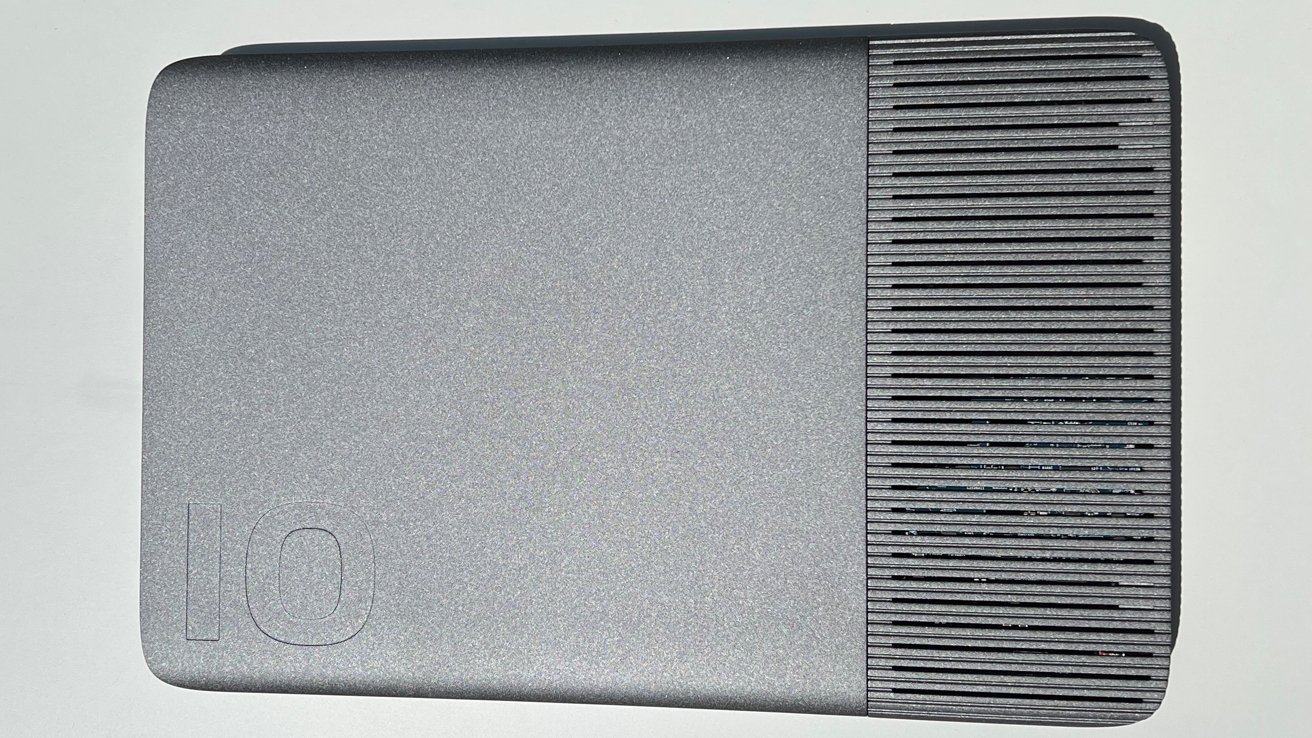
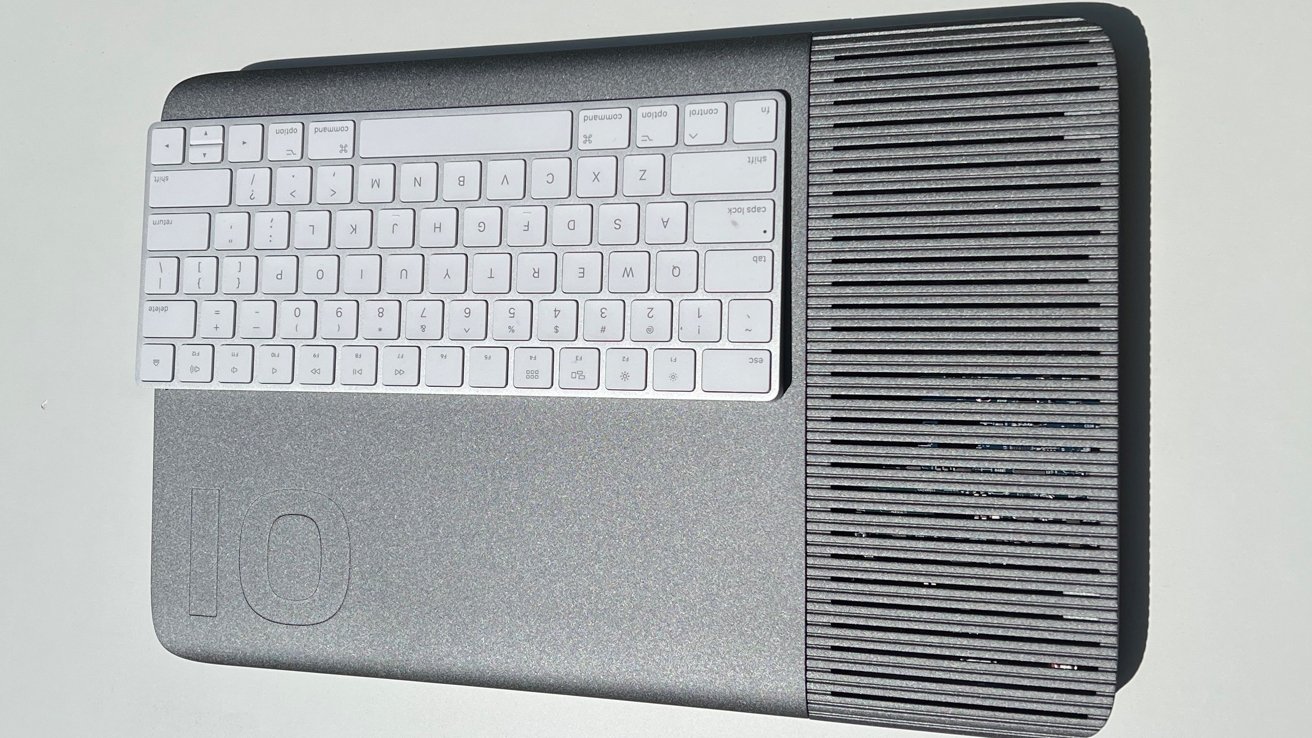
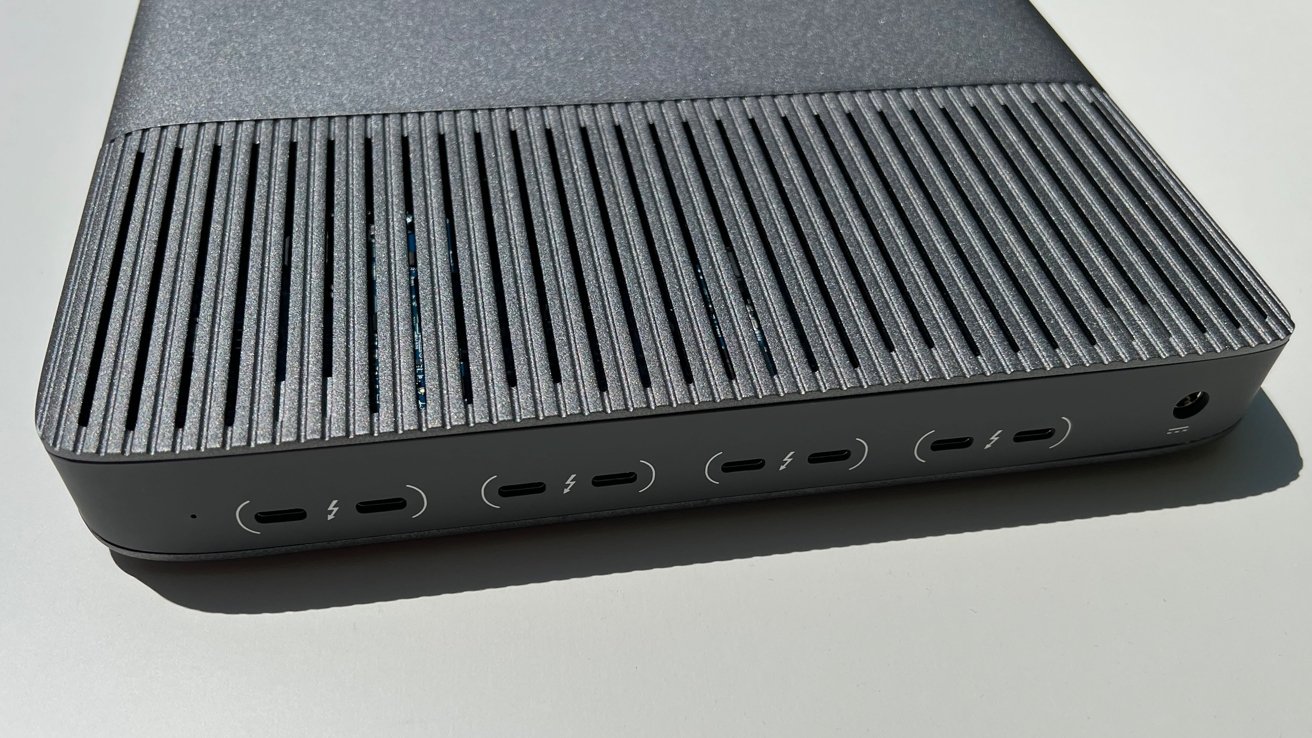
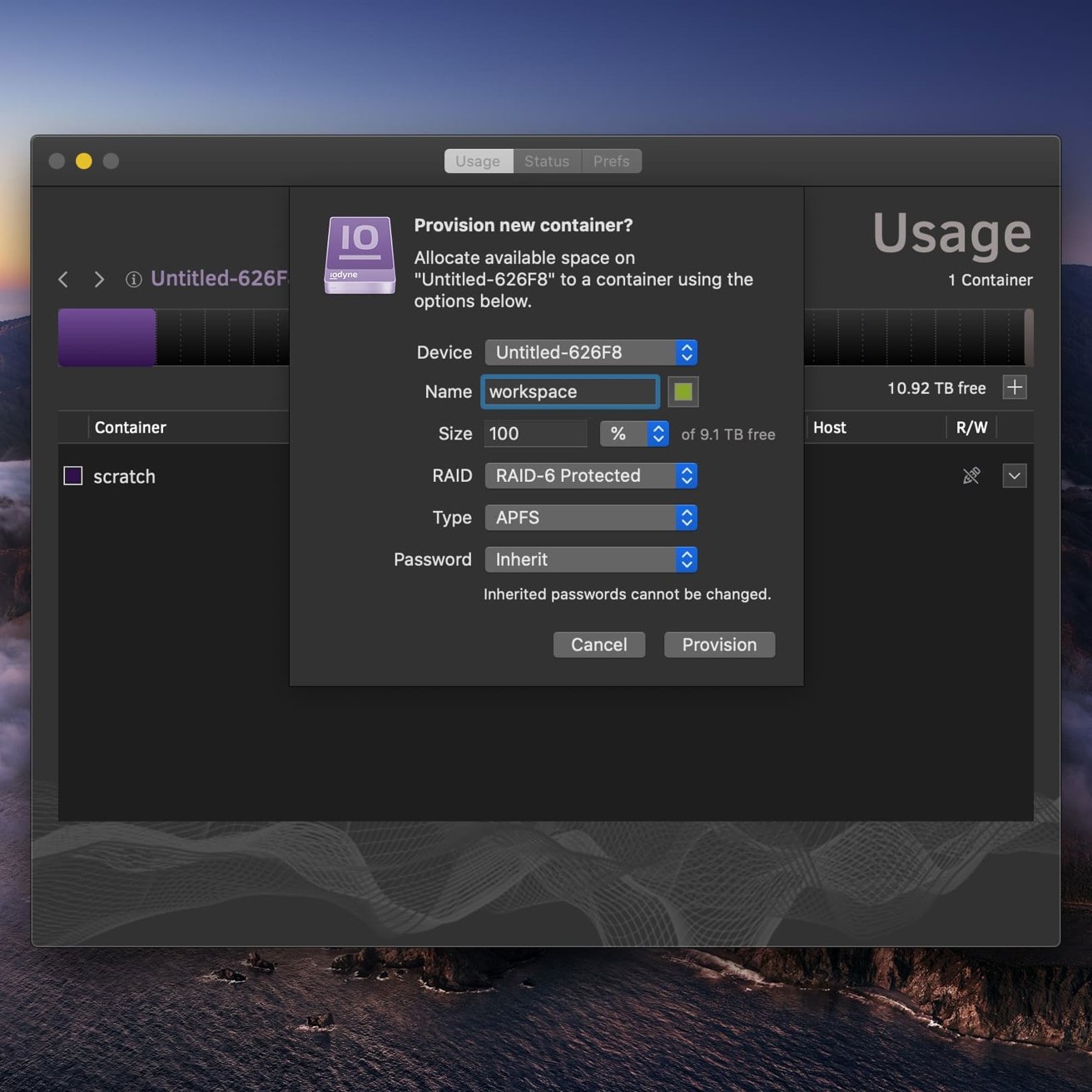
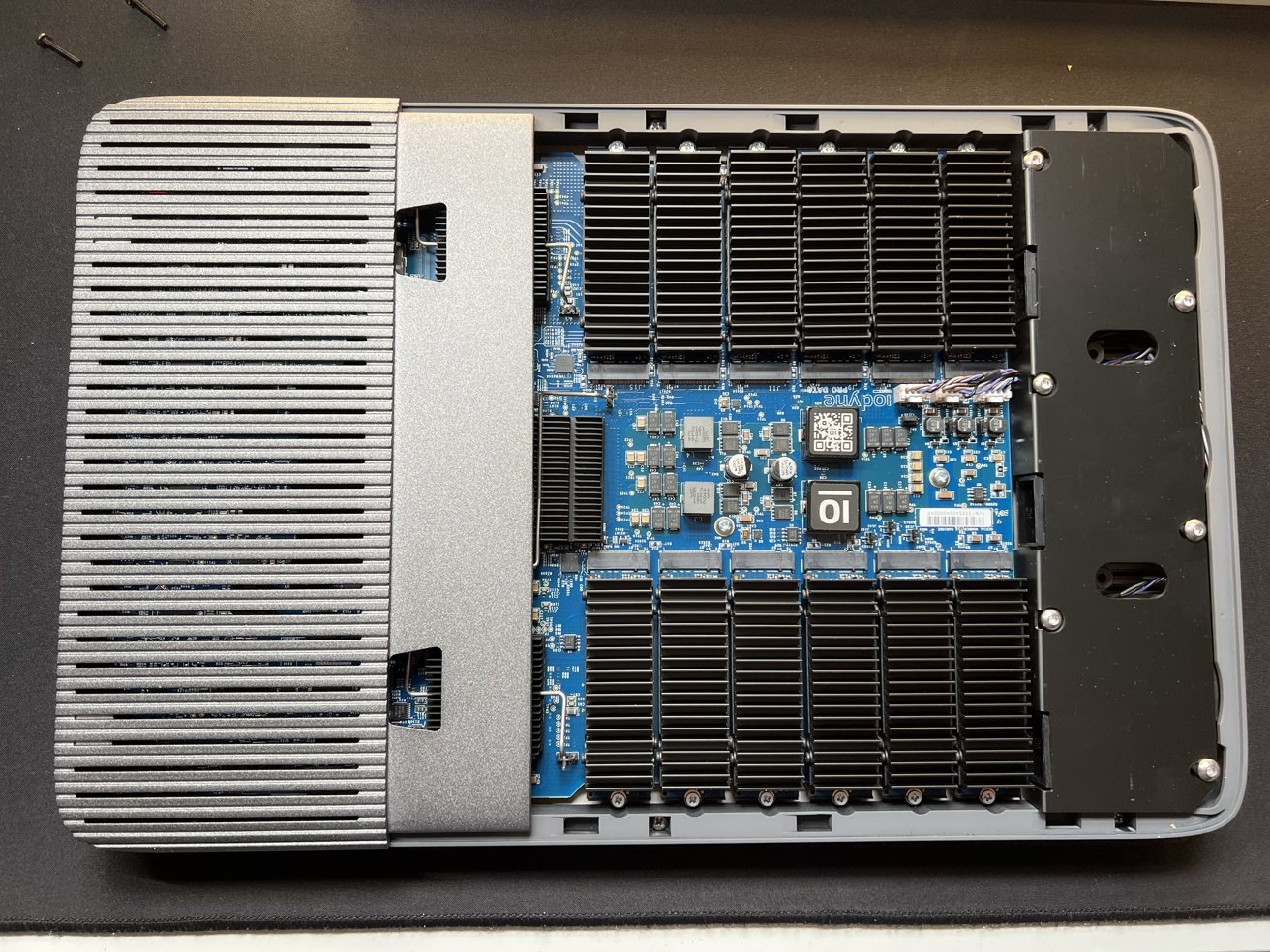
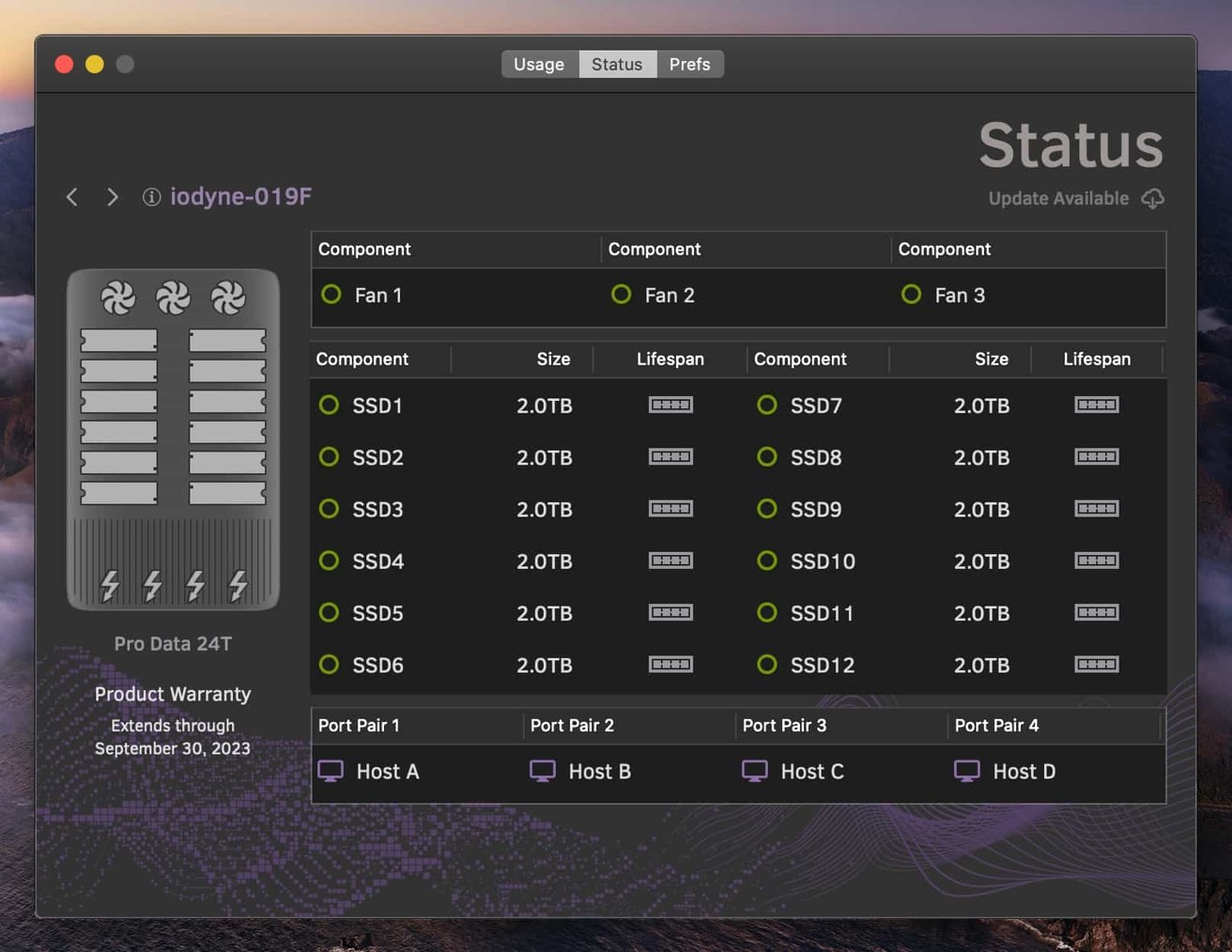

-m.jpg)






 Malcolm Owen
Malcolm Owen
 William Gallagher
William Gallagher



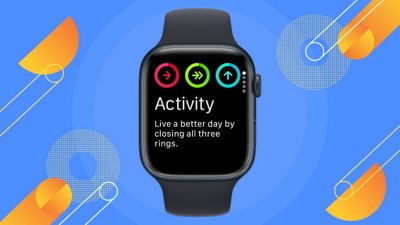
 Andrew Orr
Andrew Orr
 Wesley Hilliard
Wesley Hilliard




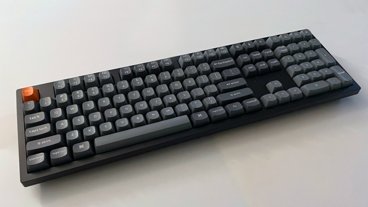

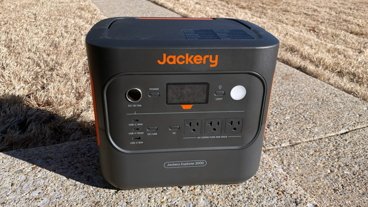

8 Comments
🤤
I wish I had a need for this, seems like very cool tech!
No Windows or Linux support as a CON? Not to me. This device is designed for Macs so I really don't care if other OSes can't use it.
The write speeds show the typical issues my MBA are having. Great read speeds but limited write speeds. I could be wrong but it appears this storage device is meant for four Macs. What I would like to see is a Mac Studio connecting to this device with four TB cables with the ability to run RAID using all four individual TB channels on the Mac Studio to push 1/4th of the data through each channel into the RAID.
The Mac Studio's unified memory is really fast, much faster than TB-attached external devices. I could see the use of this RAID storage for a small cluster of Macs but I'd rather see a external device that pushes the limits of Thunderbolt and NVMe RAID boxes. Iodyne talks about multi-path performance (Combine multiple Thunderbolt connections for the first time to boost bandwidth to a single computer.) but unless I'm not understanding their new-to-me terms, I don't see how I'd be able to connect four TB ports from the Mac Studio to the RAID and have it automatically direct data through all four ports. Will macOS do this automatically?
Almost
as fast as a Mac Studio internal SSD, where I got > 6GB/s read and almost 6 write.
An internal PCIe card in a Mac Pro can reach these speeds but isn't as portable and doesn't have the sharing options.
Too bad a 0TB option isn't available, because I've already spent a fortune on M.2 NVMe cards that could presumably be used. Even so, it seems iodyne is valuing the base platform at about $2K+, which is a little steep.
Kudos for the repairability.